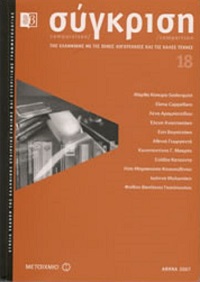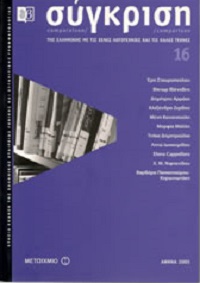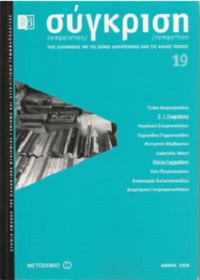Nikos Kazantzakis, The poor man of God
Abstract
From the very beginning of his career, Nikos Kazantzakis used to be interested in those heroes and saints who were able to fight the temptations of the flesh and to transform the flesh into spirit. Saint Francis from Assisi was one of the beloved fellows in Kazantzakis's way to God. Kazantzakis was amazed by his austerity that he considered as a form of communism ante literam, and by the peace that the saint had achieved by renouncing to every form of private property. During a stay in Assisi, Kazantzakis met the Danish writer Joergensen, whose biografy about S. Francis would have been translated during the war period. Later Kazantzakis met Doctor Albert Schweitzer, whose life seemed to be a reincarnation of the Holy from Assisi. The novel The poor man of God was one of the latest works of the Cretan writer. In his narration, Kazantzakis describes the saint according to his strong feelings about life and spirituality.
Article Details
- How to Cite
-
Cappellaro, E. (2017). Nikos Kazantzakis, The poor man of God. Comparison, 18, 179–211. https://doi.org/10.12681/comparison.10281
- Issue
- Vol. 18 (2007)
- Section
- Articles

This work is licensed under a Creative Commons Attribution-NonCommercial-ShareAlike 4.0 International License.
Authors who publish with this journal agree to the following terms:
- Authors retain copyright and grant the journal right of first publication with the work simultaneously licensed under a Creative Commons Attribution Non-Commercial License that allows others to share the work with an acknowledgement of the work's authorship and initial publication in this journal.
- Authors are able to enter into separate, additional contractual arrangements for the non-exclusive distribution of the journal's published version of the work (e.g. post it to an institutional repository or publish it in a book), with an acknowledgement of its initial publication in this journal.
- Authors are permitted and encouraged to post their work online (preferably in institutional repositories or on their website) prior to and during the submission process, as it can lead to productive exchanges, as well as earlier and greater citation of published work (See The Effect of Open Access).







